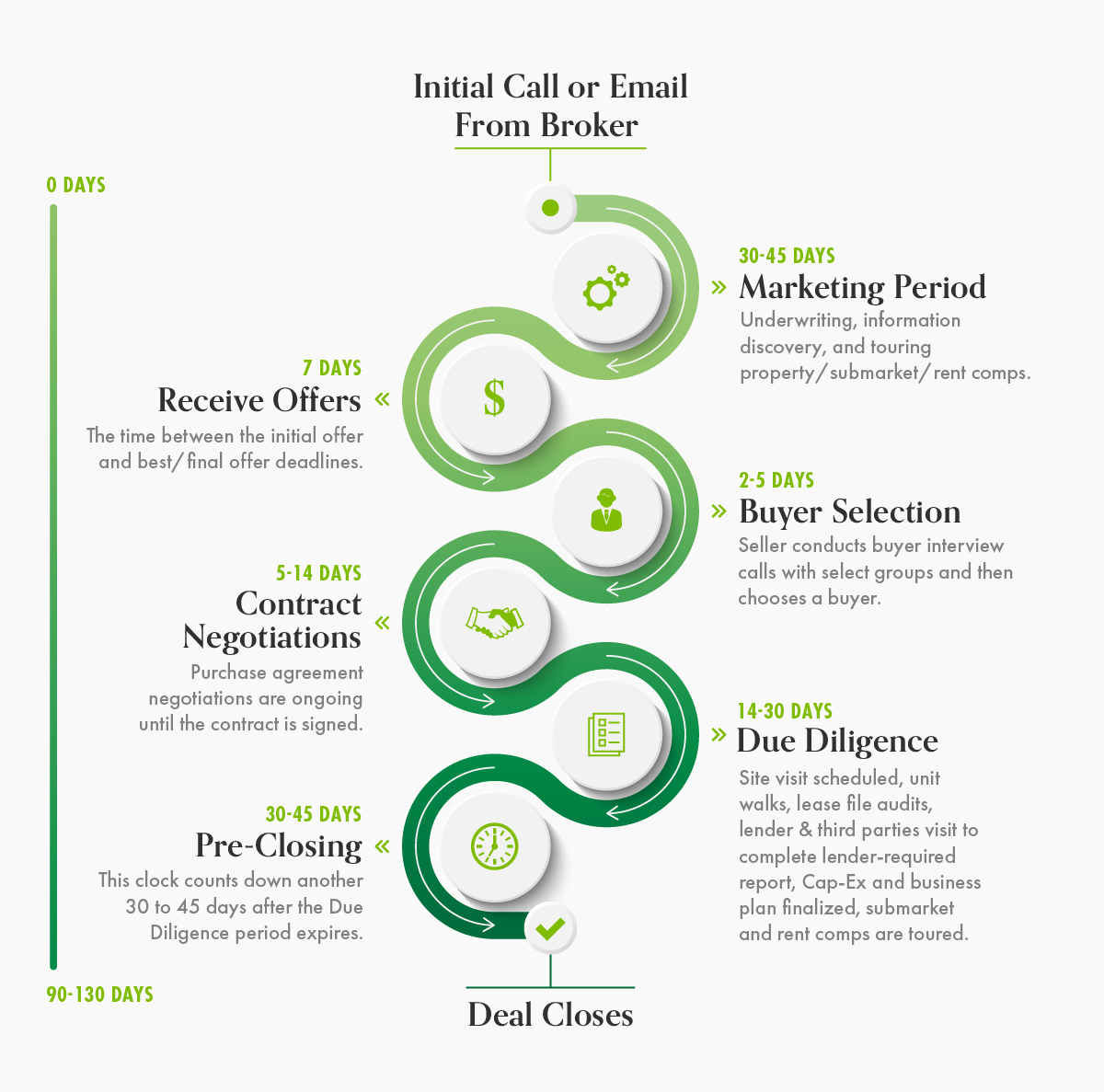Author: Aaron Spiegle, Acquisition Specialist

A basic piece of knowledge that is missing from many investors’ minds is the typical timeline of a deal. Here is a basic discussion of how a fully marketed deal typically flows from idea to investment.
It all starts with an email. Most, if not all brokerage firms send mass marketing emails to all prospective buyers when the marketing period begins for a potential investment offering. These emails have high-level deal highlights and links to online deal document portals. The marketing period for deals varies but is usually between 30 and 45 calendar days. During this period, the acquisition team begins the information gathering and underwriting process. If the deal shows enough promise, then a tour of the property, the rental competitors, and the submarket is scheduled and completed by a member of the acquisition team. This tour helps solidify the decision whether or not to further pursue this opportunity.
The marketing period ends with an initial call for offers. Shortly after the seller has received all of the initial offers from the broker, they decide who to include in a best and final round of offers.
The day after the initial offer deadline, the brokers reach out to the 3-10 groups who the seller wants to invite to a second round of offers. There is a week between initial offers and best and final offers. During this week, if a group has not yet toured the property, they will typically do so at that time. This is also a time to gather updated debt quotes from a lender and gather any final approvals from the investment committee.
Best and final offers are sent in and evaluated the same as initial offers except the seller can take up to a few days to decide either who to award the deal to at that point or they may select an even smaller group of bidders to conduct buyer interview calls. These buyer/interview calls usually include the buyer acquisition team, the broker team, and the seller team. On these calls, the seller can ask the buyers any questions they have about their firm, their offer, their underwriting assumptions, and even negotiate a deal. These calls take place within a few days after the best and final offers are due. After the seller finishes conducting the buyer interview calls, they then decide either who to award the deal to or who to further exclusively negotiate with.
After the seller makes a final buyer selection, the purchase agreement negotiations begin and last anywhere from five to 14 days. As soon as a purchase agreement is signed, the clocks start ticking down to closing day.
The first clock to expire is for the due diligence and contingency period. The due diligence period length is dependent upon the terms of the purchase agreement but can last from 14 to 30 days. During this period, the acquisition and operations takeover teams conduct unit inspections, lease file audits, finalize the business and CapEx plans, and retour the rental competitors. The lender and third parties also visit the site to complete the lender-required reports that typically include updated versions of the Survey, Title Commitment Policy, Physical Condition Assessment, Phase 1 Environmental Site Assessment, Appraisal, and Zoning Report.
When the due diligence period expires, this is typically when earnest money becomes non-refundable, and the final clock starts ticking to closing day. This clock counts down another 30 to 45 days after the Due Diligence period expires. During this time, the buyer works to assure that operations of the property will successfully transition on closing day and that their lender and equity sources are ready for closing. If all goes according to plan, this period passes, and the deal successfully closes a full 45 to 60 days after the initial purchase agreement was signed by both the buyer and seller.
